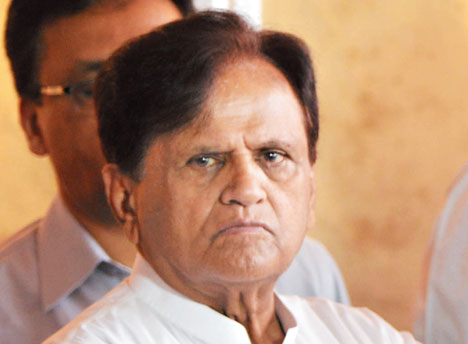
Lucknow: Uttar Pradesh chief minister Yogi Adityanath has ordered the closure of all tanneries in Kanpur's Jajmau between December 15, 2018, and March 15, 2019, "so that the sadhus and holy bathers get clean water" in the Ganga downstream during Kumbh Mela, sparking allegations of the BJP government harassing minority community traders.
The Mela will be organised at Sangam in Allahabad from January 15 to March 4 next year.
Adityanath told officials at a meeting on Wednesday evening that they must submit weekly reports to his office on the measures taken to check the release of "polluted water" from the tanneries in Jajmau, where 80 per cent of the state's tanneries are located.
The chief minister also told the officials to engage scientists from IIT Kanpur to evolve methods to reduce pollution caused by the tanneries.
The officials informed Adityanath that 264 tanneries were operating in Jajmau while 136 had been closed down in recent years because of pressure from the government not to release untreated water into the Ganga, a charge the tannery owners deny.
"These 264 tanneries release 6.7 million litres (of untreated water) per day. There is a common effluent treatment plant (CETP) of the capacity of 35mld. It costs (Rs) 17 crore to the state government annually to run the plant. There would be immediate need of Rs 17.88 crore to repair it and Rs 554 crore to further strengthen and upgrade," a report prepared by the state government during the meeting said.
It was suggested that the plant be shifted from Jajmau to Ramaipur on the outskirts of Kanpur city. There is a proposal to develop a leather cluster in Ramaipur, where the tanneries will be relocated.
Some officials said Adityanath suggested at the meeting that the tanneries be told to bear half the cost of running the effluent treatment plant.
Tanners in Jajmau said they did not release "even a drop of untreated water" into the Ganga.
"We stopped releasing untreated water into Gangaji many years ago because there was a misconception that we were solely responsible for polluting the holy river. But despite our efforts to follow the norms of the pollution and environment departments, the government continues to blame us for every problem in Gangaji," said Mahfooz Akhtar, a tanner who has a functional unit in Jajmau.
"The district administration had conducted a survey three years ago on the directions of Union minister for Ganga rejuvenation Uma Bharti and found that there were some nallahs (drains) which were directly carrying the city's garbage to the river in Kanpur. But nothing was done to stop it. Instead they kept harassing us in the name of pollution norms and working condition of labourers. As a result, many tanneries were closed and lakhs of people were rendered jobless," Akhtar said.
According to him, 10 lakh families, mostly Dalits, earned their livelihood from the tanneries.
"It is nothing but a political step to harass minority community traders (who own the tanneries). Lakhs of Dalit families are also suffering because most leather cutters in the tanneries are from this community. They (the BJP government) target the tanneries before every election for political mileage," Akhtar said, referring to the Lok Sabha polls next year.
Naiyar Jamal, another tanner, said: "It is obvious that a tannery will not release perfume, it will emit dirty water only. But every tannery has a primary water treatment plant from where treated water goes to the CETP."
"The tanneries had paid 17.5 per cent of the Rs 22 crore spent to establish the CETP in 1996. There were 175 tanneries at that time. But the local municipal authorities allowed 227 more tanneries to come up in the same locality. Obviously the CETP with the same capacity would be unable to treat the water released by such a large number of units. I want to ask why more units were allowed to come up? Jamal said.
According to him, the Jal Nigam charges the tanneries for the running and maintenance of the CETP but "doesn't spend anything to upgrade it".
"We are the softest targets to shift the blame for the pollution in Gangaji. But can we ask what happened to the thousands of crores spent under the Ganga Action Plan? Where has the money gone?" Jamal asked.
"You can understand the intention of the government from the fact that while the harshest decisions are taken against tanneries, we are never invited to present our side. Prime Minister Narendra Modi wants foreign industries to open their units in India, but his party's government is killing an indigenous industry," Jamal said.











